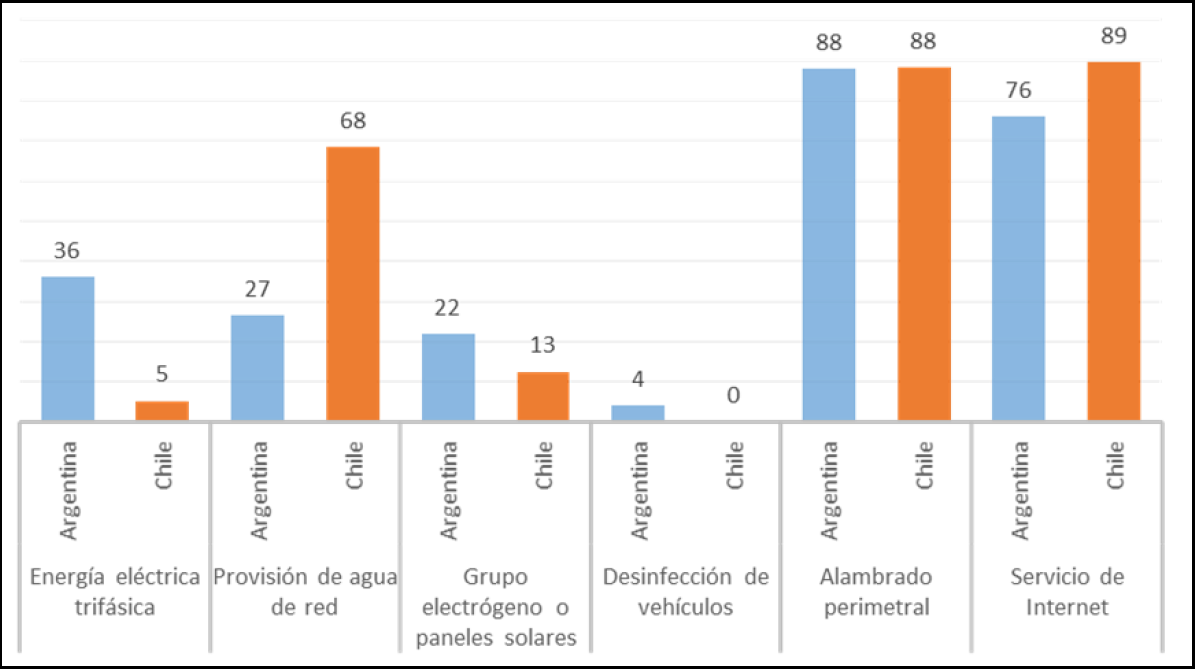The project, in a first stage, established the baseline for the introduction of technological innovations that adapt to family poultry farming in the region

A sample of 69 farms were surveyed and analyzed such as: breeding centers, egg producing farms(AP) and chicken meat farms (PC) within the metropolitan area of Buenos Aires (AMBA), from two locations (Pergamino and Balcarce) of the province of Buenos Aires in Argentina; and 2 metropolitan regions of Santiago (RM) and Liberator Bernardo O'Higgins (OH) in Chile.
The objective of the survey was kow the current situation to then design improved productive models respecting the sociocultural aspects of poultry producing families, improving the conditions of animal welfare and management of the birds.
The family farms visited are directed by 106 producers of which 58 % in Chile and 49 % in Argentina are women, who in general are owners of the land and work them together with 1 to 3 relatives.
Most farms perform regular (65 %) management since some of the general recommendations of good practices are not applied. With respect to the closed pens, 82 % have lighting, the totality has ventilation, 91 % heating (electric lamps), both manual and automatic drinking fountains are used in equal proportion and the feeders are manual. 60 % of the farms adopt the density of the birds in the recommended corral; that is, a maximum of 8 birds/mt2. Some flies and beetles infestations were found. Mortality in general is low or medium but in 10 % of the productions there was a high death (greater than 15 % of dead birds/parenting).
With respect to the general environment of the pens of the laying chickens, a wide use of high elements was observed and to a lesser extent the use of spicy elements. These elements were practically absent in the chickens of chickens.




